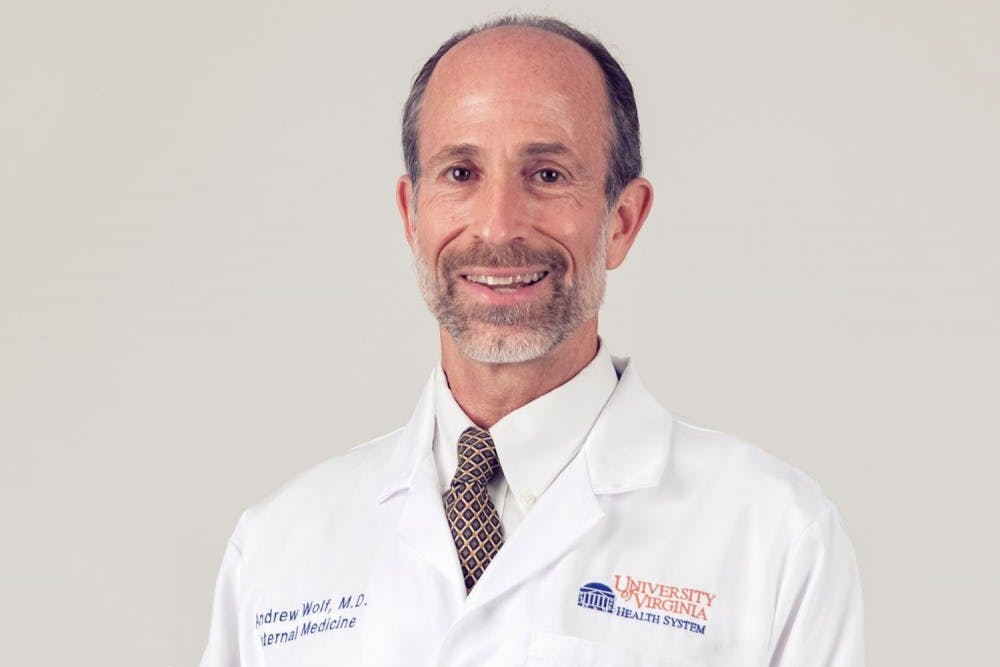An unanticipated and unexplained rise in colon and rectal cancer rates in younger Americans has led the American Cancer Society to change its guidelines. A working group in the ACS’s Guideline Development Group, led by University Assoc. Medicine Prof. Andrew Wolf, now recommends adults begin colorectal cancer screening at age 45 instead of 50.
The group was already planning to evaluate the previous ACS guidelines as part of a typical ten-year review, when a study in 2017 showing a drastic increase in colon and rectal cancer rates among younger Americans spurred guideline reassessment.
According to its data, those born in the 1990s now have double the lifetime risk of colon cancer and four times the risk of rectal cancer compared to those born in 1950. The study reflects trends doctors have noticed for several years.
“Just this week alone, I have seen a 25-year-old, 31-year-old and 35-year-old with colon cancer — none of whom have any family history or genetic predisposition,” said Traci Hedrick, an associate surgery professor and physician in U.Va.’s Digestive Health Center.
As such, the study’s findings changed the course of the working group’s review. Originally, their focus was on whether or not they should suggest an earlier starting age for only higher-risk populations, which include African-Americans, Alaska natives and American Indians.
“What it turned out was the rate of increase has been so rapid in the entire population that it actually made more sense from the modeling to make a blanket recommendation to move the starting age earlier and not just target these higher risk populations,” Wolf said.
The causes of the increase in colorectal cancer are not fully understood. It is suspected that changes in diet, such as eating more processed foods and less fiber, increasing rates of obesity and more sedentary lifestyles are likely contributors.
Wolf said these factors can’t fully explain the data. According to the ACS, in adults ages 20 to 39, rectal cancer incidence has increased by 3 percent per year from 1980 to 2013, while colon cancer rates only increased by 1 to 2 percent per year over the same time period. For adults ages 40 to 54, rectal cancer rates increased by 2 percent from the 1990s to 2013 while colon cancer rates increased by half to 1 percent per year.
The new starting age of 45 was chosen as the best point where screenings detect cancer in early stages without burdening too many cancer-free adults. However, if the rising trend continues, Wolf said, “It wouldn’t surprise me to see that age get even earlier. We might even drop the age to 40 in later updates.”
Colon and rectal cancers are the fourth most common kinds of cancer in the U.S. after lung and bronchus, breast and prostate cancers, and early detection greatly improves prognosis. In fact, while colorectal cancer has increased in younger adults, the incidence and mortality of these cancers has dropped by almost a third in adults 50 and over due to improved screening since 2000.
According to the Centers for Disease Control and Prevention, 63 percent of Americans were in compliance with the old guidelines, getting appropriate screenings regularly at the recommended age. Virginia does better than the national average with approximately 70 percent of adults following the guidelines.
The new guidelines, however, may not immediately change treatment protocol in younger adults. This is because the recommendation to start screening at 45 is “qualified,” meaning the current available evidence is not as strong as that for the traditional “strong recommendation” to begin screening at 50. Additionally, no other medical groups have moved to making a blanket recommendation for screening before 50.
More evidence from studies like randomized controlled trials will be needed to determine the benefits, according to Asst. Family Medicine Prof. Katharine DeGeorge.
“I’m going to stay tuned for now,” DeGeorge said. “I don’t think I’ll be recommending that all my patients start their colorectal cancer screening at age 45 just yet, but for some it may certainly warrant a discussion.”
According to Hedrick and Wolf, though, no matter the guideline, people should always seek medical advice if they notice blood in their bowel movements, as this can be a serious symptom of colorectal cancer.
One of the goals of the new ACS guidelines is to improve screening rates by encouraging people to consider multiple methods. While most Americans who do screenings choose to have colonoscopies every 10 years, “There’s a large segment of the population that thinks of colonoscopy and just doesn’t want to do it,” Wolf said.
The guidelines also recommend “virtual colonoscopies” and sigmoidoscopies, which are visual tests that look at the colon like colonoscopies but can be more convenient for patients, as well as noninvasive tests looking for blood or mutated DNA in feces.
The University began adopting this multi-test approach even before the new guidelines came out, hiring a full-time navigator to improve awareness among employees and their families about the importance of colorectal cancer screening and letting them know about the other options beyond colonoscopy, all of which are available in the Health Center.
The ACS also hopes this approach will reduce colorectal cancer disparities between groups, as the fecal tests are much cheaper to administer and regularly getting them between colonoscopies can help catch cancer earlier.







